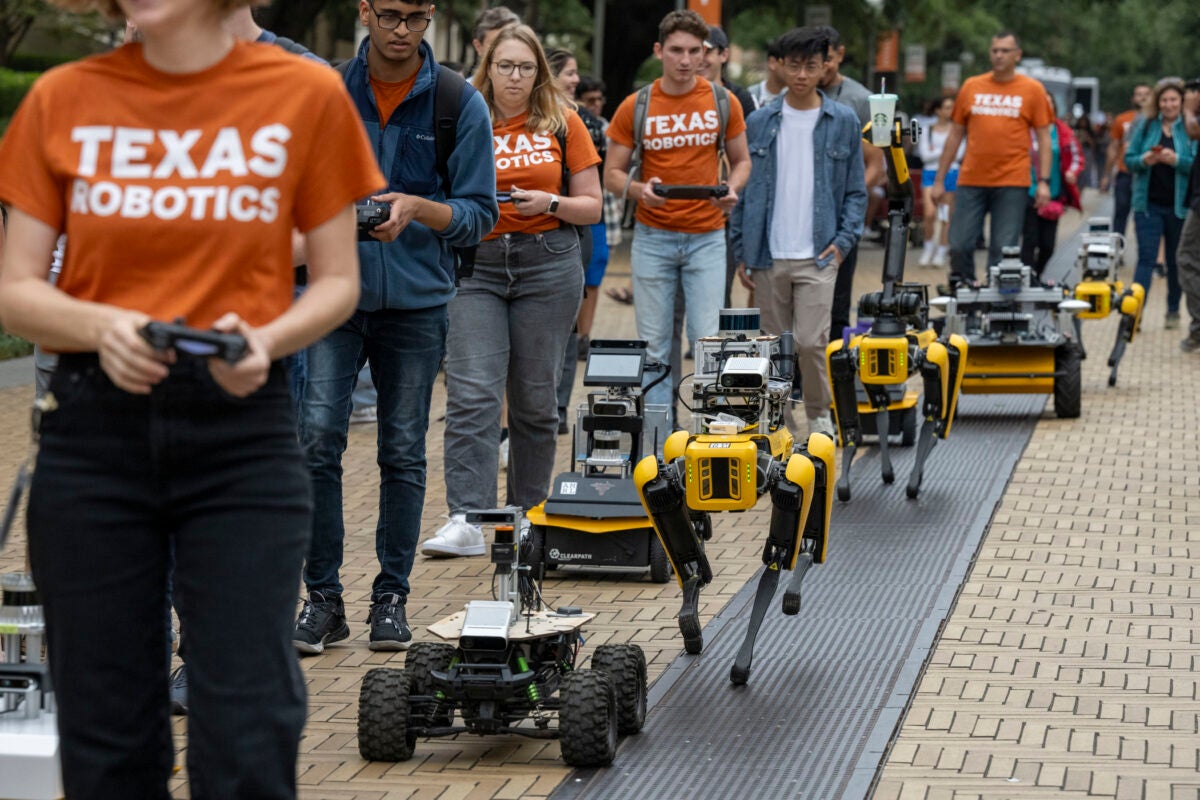“AI for the Rest of Us” Brings Expert Conversations on Artificial Intelligence to UT Community
For the Year of AI, University experts and guests offer up key lessons about AI across disciplines.

As technologies powered by artificial intelligence become an increasingly prominent part of everyday life, a new podcast from The University of Texas at Austin aims to bridge the gap between tech experts and everyone who stands to be affected by these technologies. The first episode drops Thursday, June 6th.
Listen to the 2024 series via Apple Podcasts, Spotify, Amazon Podcasts, RSS, or anywhere you get your podcasts. You can also listen on the web at aifortherest.net.
AI already is shaping how people work, learn, make big decisions and interact, but many of the basics about these technologies and their associated risks and benefits can feel unclear. As a collaboration between UT’s College of Natural Sciences and College of Liberal Arts, the new series offers insights under the banner of “AI for the Rest of Us.” It features experts from across campus and draws upon lessons in a recent UT course, “The Essentials of AI for Life and Society.” Both the podcast and the preceding course involve faculty linked to UT’s Good Systems ethical AI project, shedding light on emerging AI technologies and their impact for everyday citizens and society.
The University of Texas at Austin has declared 2024 its Year of AI, and “AI for the Rest of Us” offers a summertime experience with new episodes every two weeks and chances to listen in on conversations between leading UT faculty and co-hosts Marc Airhart, a science communicator in Natural Sciences, and Casey Boyle, an associate professor of rhetoric and the director of UT’s Digital Writing and Research Lab.
“Everyone’s saying AI is about to change everything,” Boyle said. “Now I’m a critical thinker and user of technologies, and, whenever we have big proclamations like that, I get a bit skeptical. So [with this series], I’m looking to find out more.”
Topics will from range from what AI and machine learning are, to how new applications stand to affect areas like education and health care, to upcoming changes and concerns for the workforce, our democracy and more. The first episode features Peter Stone, a professor of computer science, director of Texas Robotics, one of the core faculty behind the essentials course and Good Systems and chair of the multi-institution AI 100 Study. Stone previously has spoken about the impetus for a broad-based approach at UT to introducing AI concepts to all.
“My number one hope,” he said, “is that participants get the ability to discern what’s realistic and what’s science fiction, to be able to understand the terminology that’s being used in the news, to be able to apply the lessons to real decisions that they need to make in their own careers and to be engaged and inform the public debate about how our society should respond to these new technologies.”



